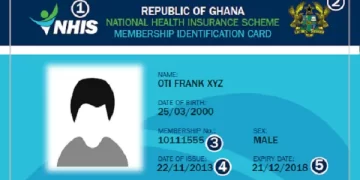A Senior Policy advisor for Fiscal Management at the Ministry of Finance, Dr Nii Noi Ashong has said the level of borrowing is a concern to government.
Speaking at Media General’s Fourth Economic Dialogue series on Thursday April 1, he stated that government has no option but to borrow to save the people from the dreaded coronavirus pandemic.
“We can’t borrow forever, we need to grow the domestic economy,” Dr Ashong said.
He added “Growth is going to be broad-based characterized by the CARES programme. So we are on the right path.”
Asked whether government is worried about the level of borrowing, he said “We are worried but in the short term. We need to pay workers, we need to build hospitals, and we need strengthen health systems. All these had to be done as a responsible government.”
Also speaking at the forum was a Professor at the Institute of Statistical Social and Economic Research (ISSER) of the University of Ghana, Peter Quartey.
Prof Quartey noted that the new taxes introduced by the government in the budget statement for the 2021 fiscal year are likely to collapse businesses in the country.
He also indicated that the taxes will also increase the inventive for people to avoid paying levies.
The government introduced a Covid-19 Health Levy of a one percentage point increase in the National Health Insurance Levy and a one percentage point increase in the VAT Flat Rate to support expenditures related to Covid-19 in the budget statement.
“To provide the requisite resources to address these challenges and fund these activities, government is proposing the introduction of a Covid-19 Health Levy of a one percentage point increase in the National Health Insurance Levy and a one percentage point increase in the VAT Flat Rate to support expenditures related to Covid-19,” the budget said.
Prof Quartey stated that businesses will have no option but to pass on cost to consumers.
“The tax increase for instance is likely to increase the cost of doing business for many of the private sector operatives. It might reduce investments it might also increase incentive to avoid n tax, people naturally don’t want to pay tax unless we have a robust system otherwise it will lead to tax avoidance in some instances.”
The government received flak for these new taxes at a time scores of Ghanaians cost of living has gone up following the impact of the COVDI-19.
For instance, a financial analyst with the Dalex Finance, Mr Joe Jackson, said the 2021 budget statement is not bold enough.
He said given the situation the local economy is faced with following the impact of the coronavirus pandemic, the government should have been bold enough to borrow more to deal with the ravages of the pandemic.
Prior to the budget reading, Mr Jackson had asked the government to borrow more to deal with the effect of the pandemic.
Speaking on the Key Points on TV3 Saturday March 13, Mr Jackson said “Nothing has changed. We are as broke as we were before Covid.”
He added “It is not bold enough. It is the easy way out because it only introduced taxes.”
Finance Minister Ken Ofori Atta justified the introduction of the new taxes.
Answering questions relating to the introduction of the new taxes during his vetting by the Appointments Committee of Parliament on Thursday March 25, Mr Ofori-Atta said “Not everything is gone up. We need to burden share, we need to move forward.”
Read Also: Effective April 1, 2021, the PIN on Ghana Card will replace the TIN
SOURCE: ATLFMNEWSONLINE



























